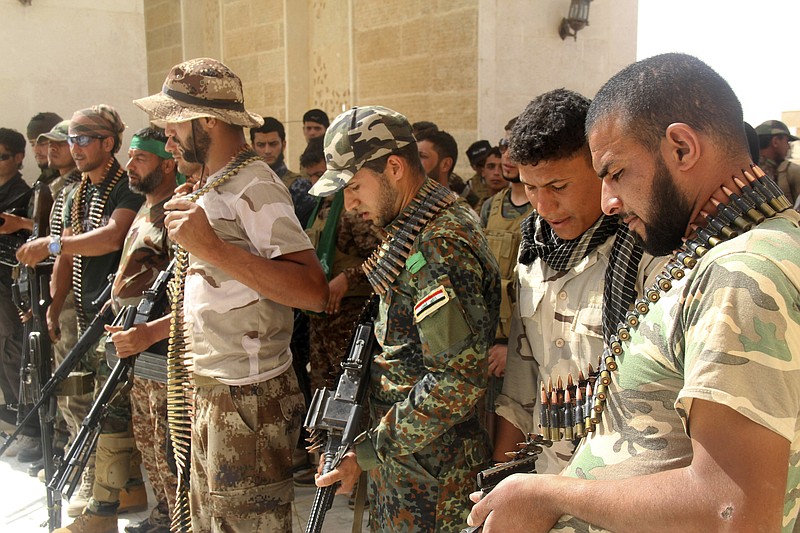If Iraqis are not interested in fighting to save their country from forces of the Islamic State, what chance does it have against a willful, well-financed terror group that already has gulped up parts of the country as well as neighboring Syria?
Islamic State forces last week captured the provincial capital of Ramadi as Iraqi forces showed, according to Secretary of Defense Ashton Carter, "no will to fight."
Indeed, according to Kurdish commanders, the first to flee were the U.S.-trained Iraqi Special Forces. Even that is in dispute in the White House, where President Barack Obama said the fleeing troops were not trained by U.S. forces but multiple defense sources said all Iraqi troops had been trained by the U.S. at some time.
At any rate, it was a similar incident to when Iraqi forces abandoned another large city, Mosul, to the Islamic State last year.
Carter said in the Ramadi incident the Iraqi troops not only were not outnumbered by the Islamic State but "vastly outnumbered the opposing force."
A Kurdish commander, though, said the U.S. should share part of the blame for failing to mount air strikes on convoys transporting the terrorist fighters to the city.
Air strikes are one of the ways President Obama has chosen to assist Iraq's battle for control of its sovereignty with the Islamic State, along with the training of Iraqi troops, but if neither are proving effective, a new strategy should be determined and put in place.
Granted, no matter what the United States does to assist the country where so much U.S. blood was spilled between 2003 and 2011, it will be done in a country in which there already is an undeclared internal civil war between the Shiite-led government and the Sunnis.
Neither group should want rule by terrorists, though, but life is never that simple.
Looking on from afar -- in physical distance and strategic interest -- is Obama, who correctly has said Iraqis must defend their country, that Americans do not want to put more soldiers on the ground there, and that the U.S. would offer only training and air support.
But since it is in the entire region's interest that the Islamic State forces be defeated, the president needs to explore other options -- more advisers? more weapons? more help from other Middle East countries? -- going forward.
